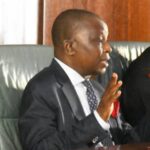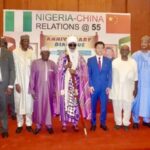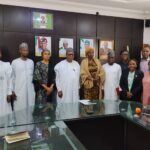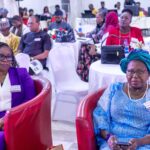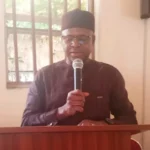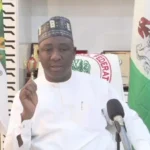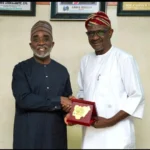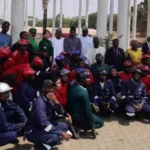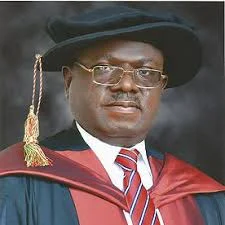By Sylvester Thompson
Prof. Maxwell Gidado, a Senior Advocate of Nigeria (SAN) and Professor of Constitutional Law, says a legitimate, locally rooted democratic constitution is key to Nigeria’s path to progress.
He said this in his lecture at the Nasarawa State University 53rd Lecture with theme: “Nigeria’s Unitary-Federalism and the Restructuring Debate: Perspectives from the Jurisprudence of Constitutionalism.
Gidado assured that a homegrown, legitimate democratic constitution serves as the essential foundation for the stability of any society, including Nigeria.
Sharing his thoughts on how Nigeria can escape the quagmire of constitutional manipulation and instability, the legal expert emphasised on self-examination.
According to him, when considering the constitutional steps necessary for achieving lasting peace and stability, it is essential to engage in self-examination and introspection, which inevitably raises certain questions.
He said Nigeria needs to identify the specific factors contributing to constitutional manipulation and failure of previous attempts to attain true stability.
“One does not need to be an architect to see that any structure lacking a solid foundation and strong support would easily topple like a house of cards, even in gentle winds,” he said.
Speaking on constant constitutional wrangling, he noted that the current challenge of democratic stability in Nigeria required an in-depth exploration of new ideas that go beyond the colonial narrative or the framework of coexistence.
The legal expert advised that Nigeria must move beyond the passive and simplistic notion that the colonial foundations of the nation are the best thing to ever happen.
“It is essential to reject the theories that justified military takeovers and the imposition of unaccountable governments and dictatorships.
“The challenge of establishing stability in our country through a homegrown democratic constitution requires a more profound consideration of the relevant factors,’’ he said.
The legal expert also spoke on the sub-heading bordering on what other options existed for Nigeria’s survival if restructuring was ruled out.
He said the fact that many Nigerians still demand restructuring, or secession proves that the colonial era administrative changes, and any subsequent reforms, have been inadequate to address the nation’s underlying tensions.
He disclosed that the colonialists attempted to manage Nigeria’s diversity by introducing a regionalist and federalist structure, dividing the country into Eastern, Western, and Northern regions.
He said the system was fundamentally flawed because the various indigenous groups that constitute Nigeria were never consulted about the terms of this federation.
“The fragile arrangement collapsed following the contentious 1965 federal elections, a period during which the Northern region even contemplated secession before ultimately deciding to stay,” he said.
NAN reports that Nigeria’s 1999 constitution has been altered five times and is currently undergoing its sixth alteration process by the 10th House of Representatives.
The Committee has thus set a 24-month timeline for this review assuring Nigerians of a new constitution that will reflect the yearnings of every citizen. (NAN)(www.nannews.ng)
Edited by Sadiya Hamza

